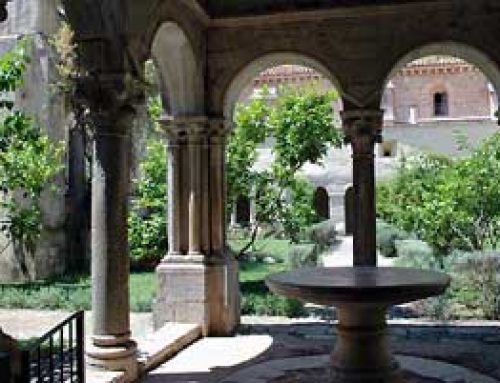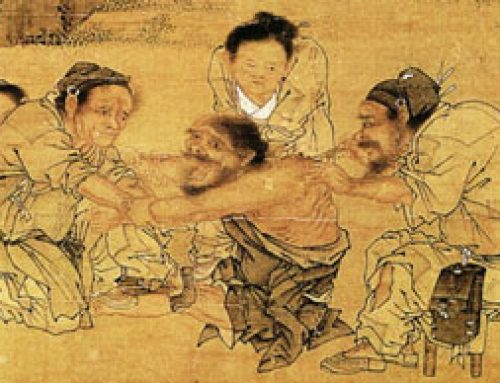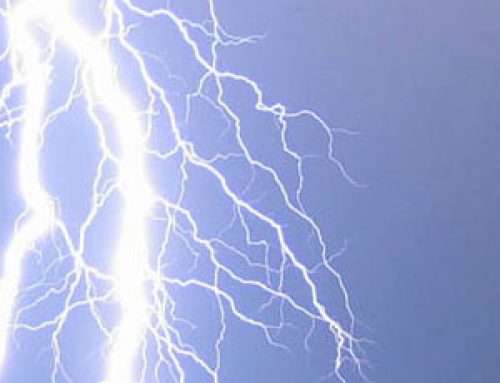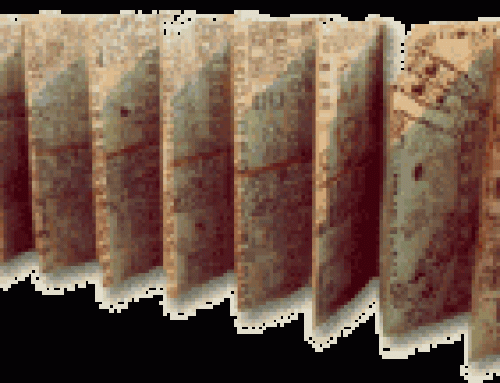
Florence, Italy
Who was Boccaccio?
Most of the people who knew how to write in the early Middle Ages were monks. So most of them wrote about serious things like God and Heaven and Hell. Even writers who weren’t monks, like Dante, usually wrote about Christian ideas.
Who was Dante?
More medieval literature
All our medieval Europe articles
But Boccaccio was different. Boccaccio wrote about real people and their real lives. Some of his stories are love stories. Some of them are horror stories or ghost stories. And some are funny. But all of them are the kinds of things that might happen to real people. Boccaccio wasn’t at all interested in Christian issues.
What’s Boccaccio’s backstory?
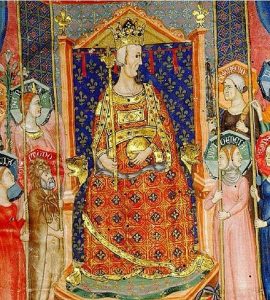
Robert the Wise, King of Naples
Boccaccio was born in Florence, Italy, in 1313 AD. His father was not married to his mother, but Boccaccio grew up with his father and his stepmother. Boccaccio’s father was a rich banker in Florence, so Boccaccio was able to have a tutor. His tutor may even have had him read Dante’s Inferno.
More about Florence
Medieval schools and education
Boccaccio moves to Naples
When Boccaccio was about fourteen, his father’s bank sent him to Naples, in southern Italy. His father worked for their bank branch there. Boccaccio moved to Naples (then ruled by Robert the Wise) with his father. He became an apprentice at the bank, learning how to be a banker himself. But Boccaccio didn’t like banking. By the time he was twenty he convinced his father to let him study law instead.
Medieval Universities
Late Medieval Naples

Giovanni Boccaccio (ca. 1365)
Boccaccio’s college years
Law school let Boccaccio meet many interesting writers and scholars. So even though he never got to be much of a lawyer, he did become a great writer. Like Dante, Boccaccio wrote in Italian and not Latin. He never learned to read Greek, but he did read Roman writers like Ovid, Tacitus, Martial, and Cicero. In 1341, when he was 28 years old, Boccaccio and his father moved back to Florence. They lived in Florence most of the rest of their lives.
Who was Ovid?
What about Tacitus?
And Cicero?
The Black Death in Florence
When Boccaccio was thirty-five, many people in Florence caught the plague. In fact, three out of every four people in Florence died of the plague – the Black Death. Among them were many of Boccaccio’s friends and his step-mother. Nobody knows for sure whether Boccaccio was just lucky to survive the plague, or if he left town during it. After the plague, Boccaccio was able to meet another Italian writer, Petrarch, and the two of them became good friends.
Who was Petrarch?
More about the Black Death

Joanna I, Queen of Naples
Boccaccio wrote the Decameron
Boccaccio’s most famous work is the Decameron, which is a lot of short stories strung together. There are a hundred tales in the Decameron. Boccaccio published it in 1371, when he was 58 years old. Almost all of these stories came from earlier collections of stories, mostly from further east, like the Indian Jataka tales, the Arabian Nights, and the Shahnameh. Boccaccio could read all of these in Latin translations at the new medieval universities.
Buddhist Jataka Tales
Arabian Nights
Shahnameh
Boccaccio’s feminist biographies
By this time Boccaccio had gotten very fat. Because of this he was sick all the time and had trouble with his heart. But he kept writing. In 1374, he published a collection of short biographies of famous women. It was the first book of its kind.
Adam and Eve
Who was Agrippina?
The Empress Irene
Joanna of Naples
The biographies started with Eve in the Garden of Eden, moved through Agrippina and Irene, and included women of his own time like Joanna of Naples. Maybe Boccaccio picked up feminist ideas while he was studying in Naples, where many women were rulers. Boccaccio died in Florence the next year, at 62, in 1375 AD.
